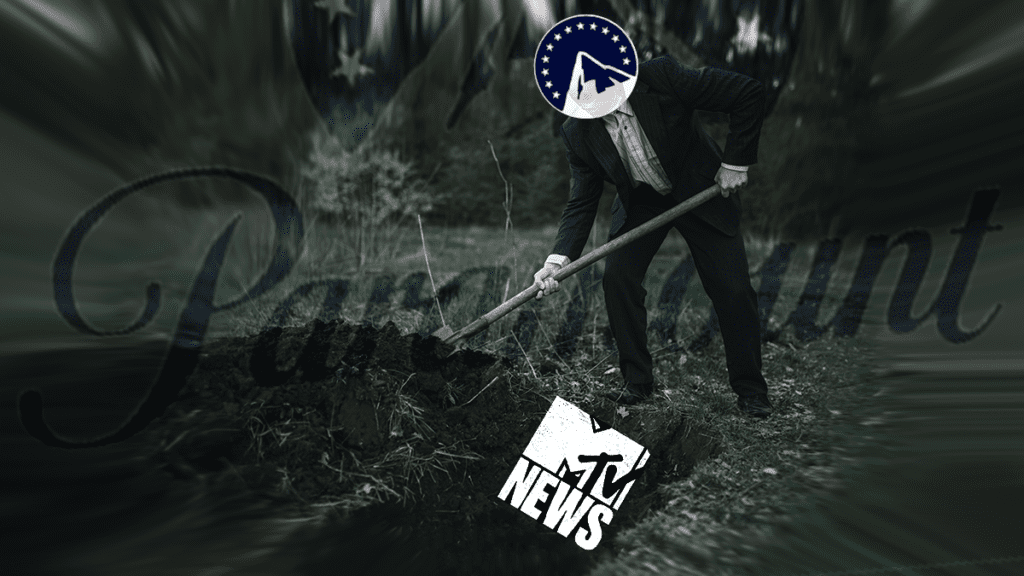In a recent and rather disturbing development, Paramount Global decided to delete the digital archives of MTV News and Comedy Central spanning over thirty years, effectively erasing public access to millions of pieces of cultural history. This decision has sparked a wide-ranging debate about threats to historical digital archives. As CEO of the Museum of Pop Culture (MoPOP)I believe that this development is not only worrying, but also reflects a broader problem facing our society today: the need for accessible and preserved archives that uphold the integrity of our cultural history.
The impact of the loss of the MTV News archive
MTV has been a cultural icon since its inception, influencing music, fashion, language and lifestyle, and shaping the social identity of generations. By digitizing and making its archives available to the public, MTV News not only preserved a wide range of cultural artifacts, but also provided invaluable resources for education, research and entertainment. The deletion of such an archive means more than simply losing access to old music videos and shows; it represents a loss of the ability to study and understand significant cultural changes and phenomena that have shaped contemporary society. Not to mention that the work of thousands of journalists and artists has been permanently deleted.
This action sets a dangerous precedent for the preservation of digital media. As our world becomes increasingly virtual, the role of media companies in maintaining accessible archives becomes ever more crucial. Deleting these archives can lead to cultural amnesia, where future generations lack the resources necessary to learn from past media landscapes, understand evolving social norms, and appreciate the art and creativity that characterized different eras.
Why digital archiving is important
Digital archiving is essential not only for preservation, but also for making historical and cultural content accessible to a global audience. It democratises access to information, ensuring that anyone with internet access can learn about and enjoy cultural heritage, regardless of geographical and socio-economic barriers.
Museums and cultural institutions should lead the charge in promoting and implementing robust digital archiving strategies. For example, at MoPOP, we have established a Extensive digital archive of the five fundamental elements of hip-hop culture: DJing, MCing, graffiti art, B-boying/B-girling, and self-awareness. This archive serves as an educational tool that highlights the sociopolitical context in which hip-hop evolved. Engagement with the digital archive also supports scholarly research and promotes ongoing learning, ensuring that invaluable cultural content is preserved and accessible for future generations.
As our reliance on digital resources and scholarly databases deepens, the accessibility of these materials becomes crucial, not just optional. This reliance underscores a significant power imbalance: when the availability of information is controlled by a few, the possibility of loss or restriction of access can have far-reaching consequences. That is why it is imperative to advocate for legislation that enforces the preservation of digital content and ensures its accessibility. Specific policies, such as those based on the model of the Digital Initiatives of the Library of Congress or the Digital Guidelines Initiative for Federal Agencies (FADGI), which advocates for maintaining open access protocols and supporting digital infrastructure through government-funded initiatives, are critical.
The recent deletion of MTV News' digital archives is a stark reminder of the fragility of our digital cultural heritage. This development should spur media companies, cultural institutions, policymakers and the public to action. Digital archives should not be seen simply as repositories of past creations, but as active and dynamic resources that educate, inspire and entertain.
To protect these invaluable resources, we must push for clear and viable policies that ensure digital preservation and accessibility. Advocate for the expansion of the Digital Millennium Copyright Act (DMCA) Including mandatory digital archiving clauses or establishing public-private partnerships that support the long-term sustainability of digital resources, as seen in various state-level digital preservation laws, are some of the avenues that stakeholders can take. By taking these concrete steps, we can safeguard our cultural memory and ensure that today’s digital treasures remain accessible to future generations.
thanks to our partners at consequence.net
